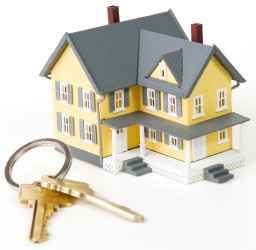




Guide To Independent Living:
Independent Living Advice
Most seniors, given the choice, would prefer to stay in their own homes and communities for as long as possible. However, many will encounter barriers or obstacles to maintaining an independent lifestyle. These include problems related to physical or emotional health, lack of a proper support network (community programs, family), housing, safety and security, mobility, and communication.
Most seniors, given the choice, would prefer to stay in their own homes and communities for as long as possible. However, many will encounter barriers or obstacles to maintaining an independent lifestyle. These include problems related to physical or emotional health, lack of a proper support network (community programs, family), housing, safety and security, mobility, and communication.
Independent living allows those with physical limitations caused by age, weakness, disability or ill health to live full lives within their own homes and communities. The information featured on the pages below, while quite extensive, is not meant to take the place of a professional assessment by a qualified clinician. If you feel it is warranted, you should always consult a physiotherapist, occupational therapist or doctor for advice.
Independent Living Aids
Many practical and helpful devices that can make living alone or with a disability much easier and convenient, including:
Independent living aids for the kitchen: tableware, food prep, cooking.
Independent living aids for the bathroom: Organization, bath lifts, washing, scrubbing, toilets and toilet seats.
Independent living aids for getting dressed.
Independent living aids: reaching tools.
Independent living aids: stair lifts.
Independent living aids: using the telephone.
Independent living aids: computer basics.
Many practical and helpful devices that can make living alone or with a disability much easier and convenient, including:
Independent living aids for the kitchen: tableware, food prep, cooking.
Independent living aids for the bathroom: Organization, bath lifts, washing, scrubbing, toilets and toilet seats.
Independent living aids for getting dressed.
Independent living aids: reaching tools.
Independent living aids: stair lifts.
Independent living aids: using the telephone.
Independent living aids: computer basics.

Home | Contact Us | Sitemap | Privacy Policy | Medical Alert Basics | Medical Alert Reviews | Submit A Review | Home Safety | Accident Prevention Independent Living Aids | Independent Living Advice
Copyright 2008-2010 Medical Alert Reviews
Copyright 2008-2010 Medical Alert Reviews
More Medical Alert Resources On MedicalAlertReviews.Com:
Medical Alert Basics
Special Features Of Medical Alert Systems
Guide To Independent Living
Home Safety
Preventing Accidents In The Home
Special Features Of Medical Alert Systems
Guide To Independent Living
Home Safety
Preventing Accidents In The Home